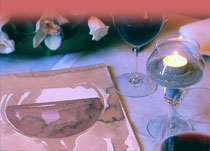HEALTH MINDED . . . RESQME TOOLS SAVE LIVES Be Proactive & Be Prepared to Save a Life by Bonnie Carroll 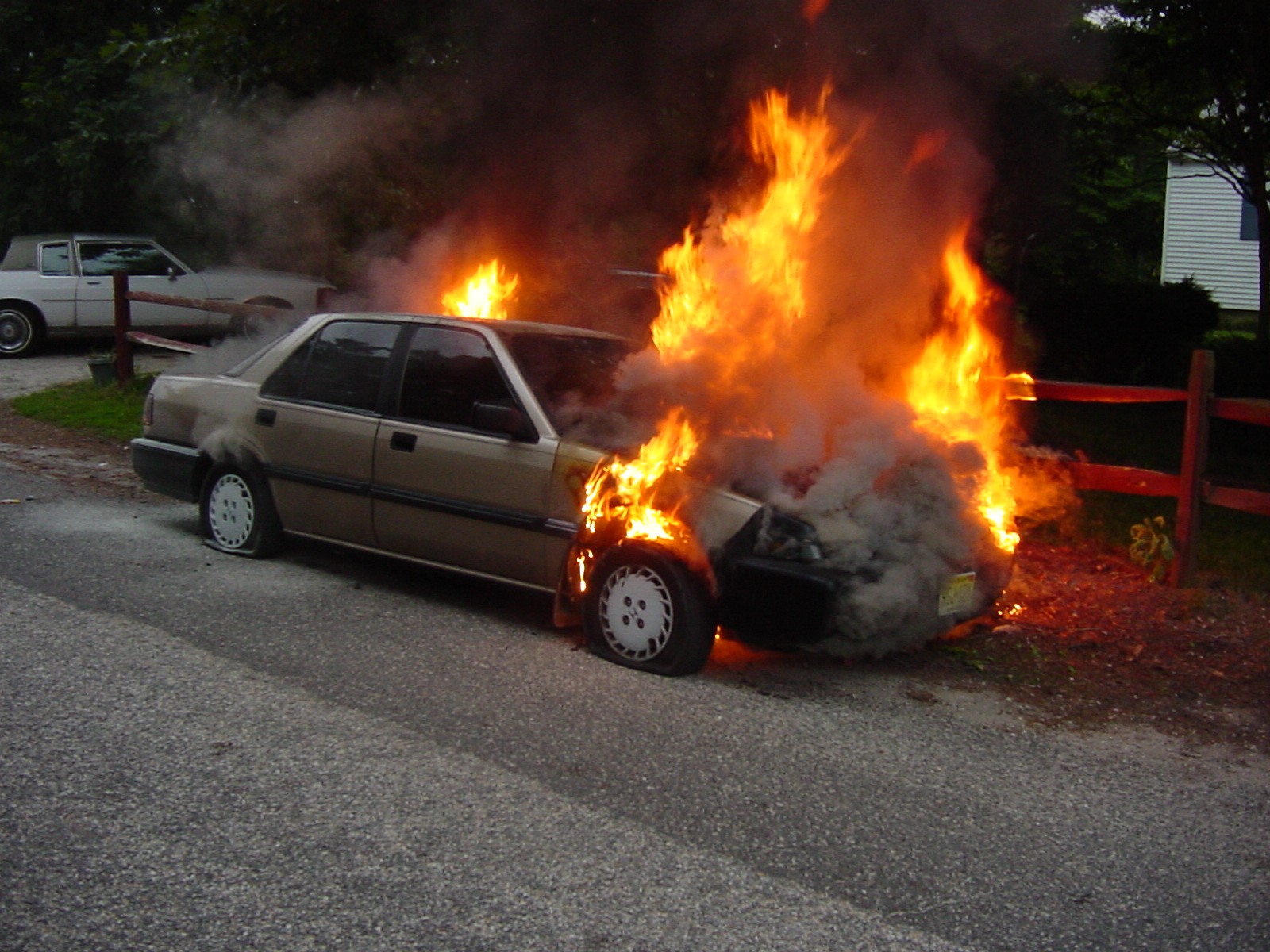
In 2015 Actor Paul Walker was trapped in a Porsche Carrera GT following an unexplained car crash in Los Angeles, and he died a fiery death. Walker's tragic death along with countless media reports on drivers across the country who are trapped in their car following an auto accident, and vehicles being swept into rushing river currents or slipping into ten foot deep mud slides are a constant reminder of the importance of taking steps to get the education and equipment necessary to save your own life and the lives of your family when face to face with an unexpected life threatening situation. These life threatening situations are always sudden and unexpected, and handling them effectively with a clear head is vitally important when there are only minutes to react. 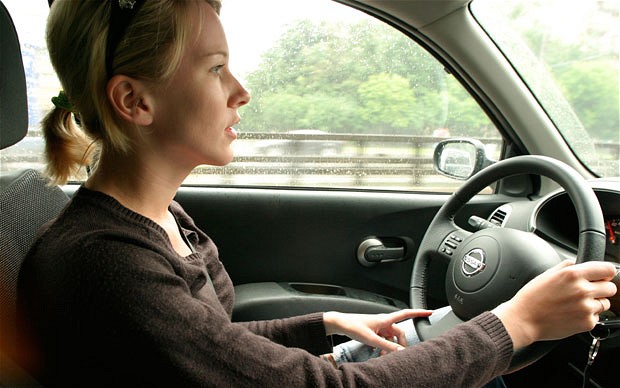
For over ten years Laurent Colasse and his collaborators have been designing and developing products to save lives in emergency auto situations. Among these potential lives to be saved are the army of women drivers on the road in the U.S. and throughout the world who are prime targets for any of these unexpected dangers, along with the children they are transporting. Education on the Resqme kit of tools created by Colasse can put these women in control of any situation, with the tools necessary to save themselves and their passengers. Women driving alone are often stalked by car thieves and the Resqme kit also includes a mace tool that is recognized by law enforcement officials to provide precious time for the victim to escape the criminal and get help. The successful use of mace to stop the recent attack on a Uber driver in California is evidence of the value of this life saving tool. .jpg) Laurent Colasse, Resqme The beautifully packaged Resqme Lifesaver Kit is as chic as it is effective, and contains the key chain car escape tool, pepper spray, lifesaver alert, personal alarm, and first aid materials. The Resqme Kit was designed to keep in the car for all unexpected emergencies, and educational video's are available on the use of these tools at the Resqme website. 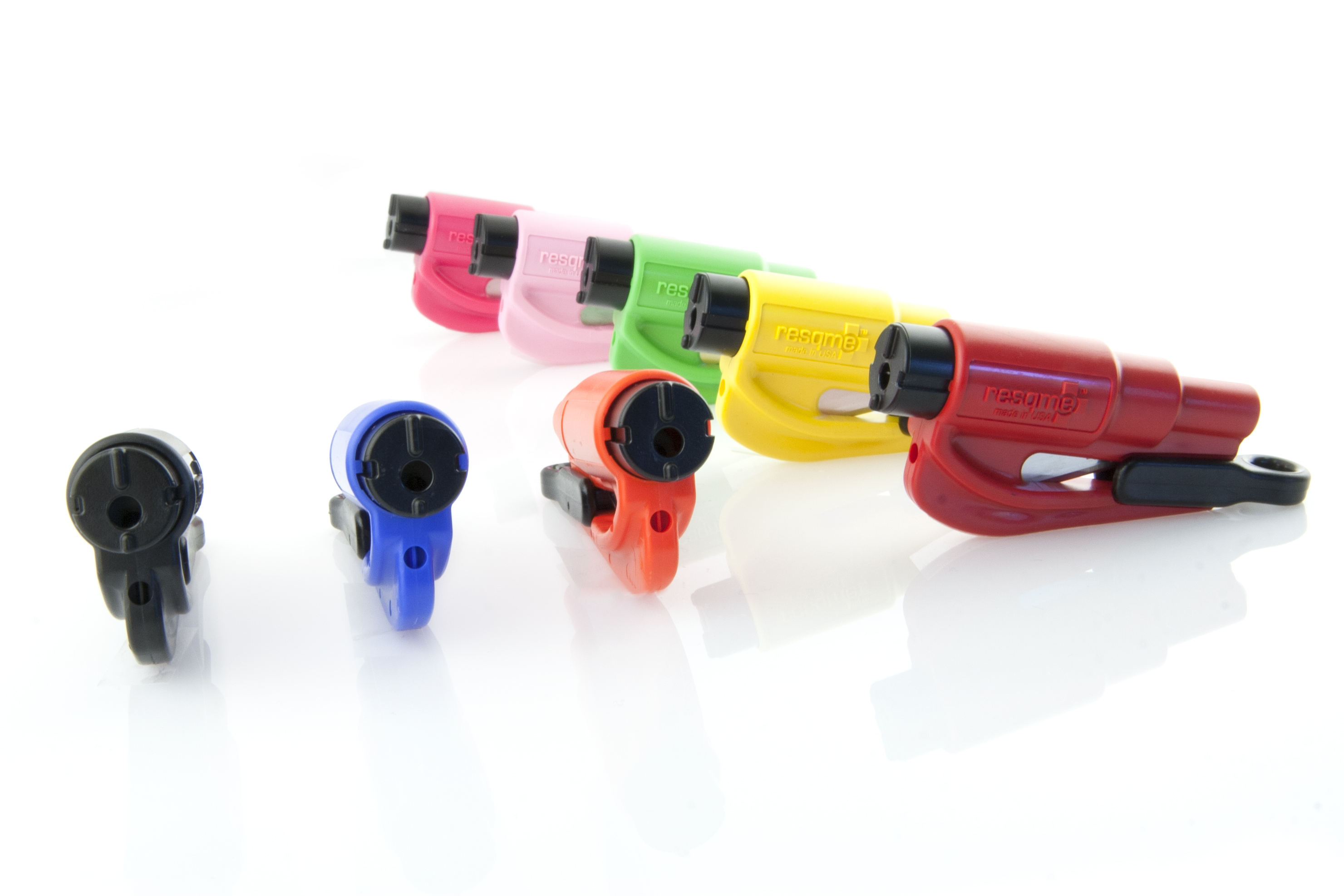 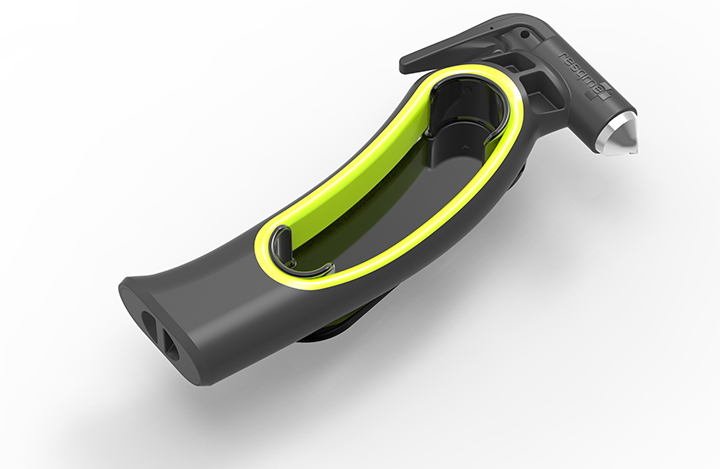
The Seat Belt Cutter and Car Window Breaker are compact, lightweight and powerful. They are easily accessible and require no installation. They are tested and certified by TUV and have been saving lives worldwide for over ten years. In 2014 they were a winner of the Red Dot Design Award. 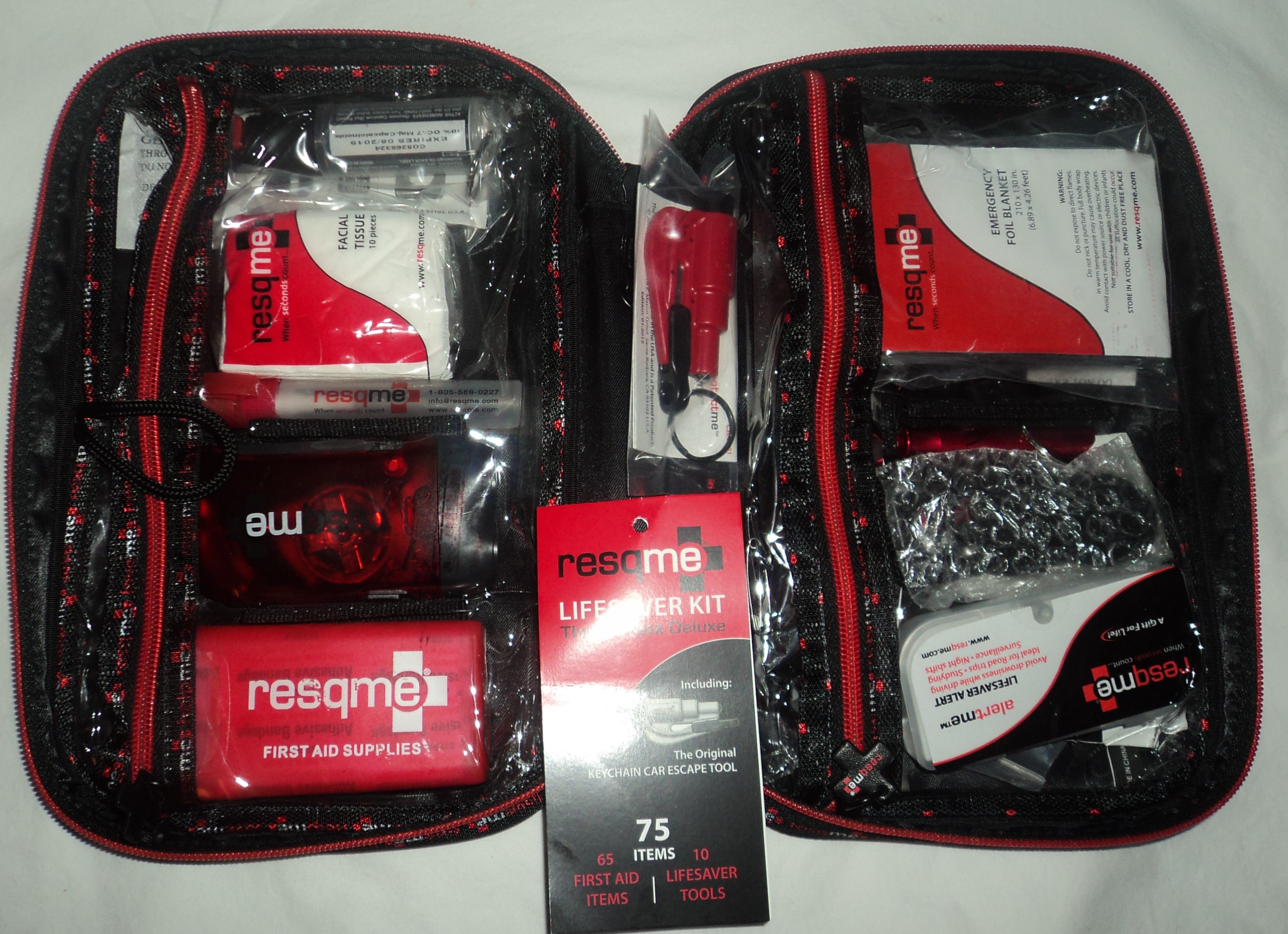
Resqme Life Saving Kit It is Laurent's goal to influence Washington to provide information on auto life saving techniques available using Resqme tools in the same way activist Janette Fennell was able to convince law makers to take action regarding the lifesaving necessity of mandatory release buttons inside every automobile trunk. Laurent has assisted Janette with her campaigns by providing Resqme tools inscribed with her logo for fund raising purposes. “We believe in proactive behavior, we would like to see a training plan implemented for advance readiness in emergency auto escape issued at governmental levels that would be similar to the well known fire regimen of 'stop, drop and roll' used by the fire department, emergency services providers and the armed services to implement when people catch on fire." “People need help learning to be socially responsible for their own safety and that of their families. Our company has worked with Sheriff's, AAA and paramedic groups, fire fighters, police departments and community service providers in Florida cities where these professionals learn to use the products and teach others how to survive and get out of their seat belt, break the window and exit the car as quickly as possible.” We hope to work with more of these groups in cities throughout the U.S and Canada to provide these valuable life saving techniques,” said Colasse. 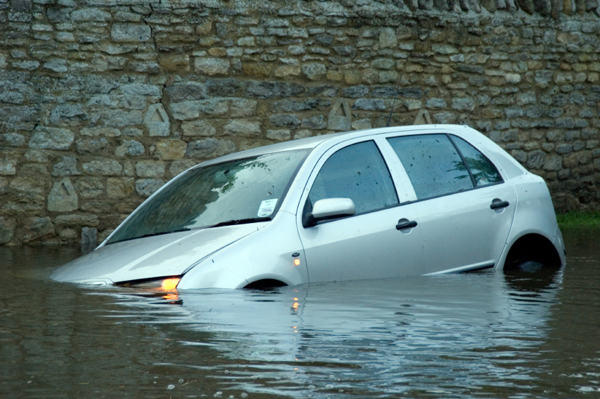
The talented entrepreneur founded a nonprofit organization Resqme World Foundation ten years ago with the assistance of Dr. Gordon Giesbrecht, University of Manatoba, a friend and collaborator on Resqme. “Our organization promotes a four step action plan to escape from a car under water.” “Fast action is imperative in these situations because all you have is two minutes to get out of the car to survive,” said Colasse. It is the organizations hope to standardize response to vehicle submersion across the country. The four step action plan featured are survive – get out of your seat belt – break the window – get older children out first and then youngest. The Resqme Steps are: 1. Seat Belts, 2. Window, 3. Children, 4. Out. For information on the foundation please visit: www.ResqmeWorldFoundation.com. While sharing a story with me about a customer who phoned him to say thank you after he used the Resqme seat belt cutter to escape possible death Colasse became very emotional and said he told him 'you saved your own life by learning in advance how to handle the situation successfully.' According to Laurent “our Resqme team feel very strongly about the importance of the work we are doing, and we have experienced how truly fulfilling it can be. We believe knowledge is power, and we know if young people can also be trained and prepared to take control in sudden lifesaving situations it will be better for everyone!” Following this interview it was obvious to me that having this Resqme tool on your keyring could be the difference between life and death. The seat belt cutter has proven in countless situations to have saved the lives of drivers in trouble, as well as their families. All you need to do is put it on your keyring or attach it to your rear view mirror and take a few minutes to watch the 'how-to' video on their website to be prepared instantly if or when you may need it. The products are available in Europe, Canada and the US. For additional information on Resqme products please visit: www.resqme.com. RESQME INC. HEADQUARTERS
Santa Barbara, CA 93103, USA
Tel: 1-805-568-0227 ____________________________________________________________________ 
Late-Breaking Research: Angina is Linked with Abnormal Heart Blood Flow in Patients with Female-Pattern Heart Disease Cedars-Sinai Heart Institute Research Presented Today at American Heart Association Scientific Sessions Shows that Chest Pain is Linked with Abnormal Heart Blood Flow Although Medication Did Not Alleviate Symptoms in Patients with Moderate Coronary Microvascular Dysfunction
Chest pain in female-pattern heart disease is linked with abnormal heart blood flow, demonstrated with a drug commonly used to alleviate chest pain patients with coronary artery disease, which was found to be ineffective in patients with moderate female-pattern heart disease, but may offer some relief for sicker patients, a new Cedars-Sinai Heart Institute study shows.
The study’s results were presented today as a late-breaking trial at the American Heart Association Scientific Sessions in Orlando. The study is published online today by the European Heart Journal and will appear in an upcoming print edition of the journal.
The drug, ranolazine, generally is prescribed for patients with angina, an often painful sensation of chest pressure common in coronary artery disease. Coronary artery disease develops when the major blood vessels that supply the heart with blood become damaged, often because cholesterol plaque clogs the heart’s major arteries and decreases blood and oxygen flowing to the heart.
Coronary artery disease typically affects male patients. In women, cholesterol plaque tends to spread more evenly into thousands of tiny blood vessels that surround the heart muscle. Women with this condition, called coronary microvascular dysfunction, often undergo tests for coronary artery disease, which fail to reveal coronary microvascular dysfunction. As a result, many women go undiagnosed although they are at high risk for a heart attack.
“Most standard treatments for heart disease were developed after being tested exclusively on men,” said Noel Bairey Merz, MD, director of the Barbra Streisand Women’s Heart Center in the Cedars-Sinai Heart Institute. “For too long, physicians treated women’s heart disease the same way they treated heart disease in men. We wanted to test if the symptoms experienced in these patients are related to coronary microvascular dysfunction by using a medication known to be effective in chronic angina, to see if this treatment could be helpful to women with microvascular or female-pattern heart disease.”
Bairey Merz led the double-blinded, placebo-controlled study as part of the National Heart, Lung, and Blood Institutes’ Women’s Ischemia Syndrome Evaluation (WISE) study, a multi-year, multi-center research initiative aimed at improving diagnosis and developing treatments for microvascular heart disease.
In the study conducted at the Cedars-Sinai Heart Institute and at the University of Florida, 128 coronary microvascular dysfunction patients – 96 percent of them women – were given 500 to 1,000 milligrams of ranolazine twice daily for two weeks and a placebo pill daily for two weeks. Neither patients nor their physicians knew which pill group patients were assigned at which time.
During both investigational segments, the patients were assessed and tested, using the Seattle Angina Questionnaire and a test to measure the blood flow through the heart.
Results include: Whether taking the medication or taking the placebo, patients experienced no statistical difference in angina or blood flow. Change in angina directly correlated with change in heart blood flow. Patients who experienced an improvement in increased blood flow also reported an improvement in angina. The subgroup of patients with severe coronary microvascular dysfunction had significantly less angina along with improved blood flow through the heart and more satisfying quality of life “Although ranolazine was not effective in the general population of coronary microvascular dysfunction patients, we did find that patients with more severe dysfunction did experience some benefit,” Bairey Merz said. “We also were pleased to be able to show that symptoms are related to the blood flow through the heart.”
The study was supported by the National Heart, Lung, and Blood Institute under award number 5R01HL090957 and by Gilead Sciences, Inc., a biopharmaceutical company that produces ranolazine and markets it under the brand name Ranexa. Visit www.CedarsSinai.com.
|


